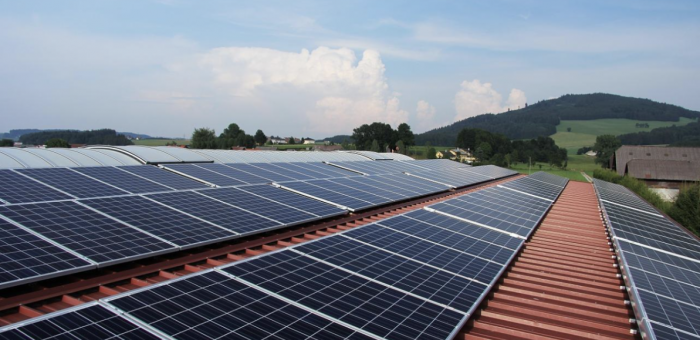It can be easy to overlook the signs of faulty wiring. A flawed wiring system in your home or office can lead to dangerous situations. It can also cause your electricity bill to shoot up. Did you know that faulty wiring can cause high electric bills? Or worse?
Faulty wires can damage your appliances and cause electrical fires. Read on to find out the warning signs to locate bad wiring and how switching to energy-efficient major appliances can help limit the risks.
Can Frayed Wiring Impact Your Power Bill?
How can faulty wiring increase your electric bill? Damaged wiring can cause an electrical system’s appliances to heat up and consume extra electricity. Additionally, faulty wires lead to electricity leakage. This means your household is drawing power, but it isn’t making it to your devices. As a result, you consume more power than is needed to run your electronics. Households with substantial wiring issues are the biggest energy consumers.
What Other Issues Can Faulty Wires Cause?
Increased Potential for Electrical Fires
Faulty and old wiring is a leading cause of electrical fires. The average home today features increased electrical devices, such as wide-screen televisions, video players, air conditioners, computers, air conditioners, complex security systems, and space heaters. If old wiring cannot bear the power load of all the appliances, it can heat up rapidly and catch fire.
Let us find you the best electricity plan in seconds and start saving.
An outdated wiring system may not be designed to handle a modern home’s load. If the circuit’s amperage rating is high, the wires need to be larger. If it can’t keep up with the required power, the wiring can melt under excess heat and cause fires. Ensure you aren’t running wiring under carpets, as it can cause them to overheat and become a fire hazard.
Coils in wiring can also result in increased electrical resistance and heat within the wire, which could also result in an electrical fire.
Damage to Electrical Appliances
Weak or frayed wiring can cause the connected appliances and lighting to use extra electricity. This means not only heavier electricity bills but also damage to your devices over time.
Faulty wires lead to outages. When power comes back, it goes through a “tidal wave” of electricity called a surge, which can damage appliances left turned on. Your smart appliances come with microprocessors that are especially vulnerable to malfunction due to surges. These microprocessors can be permanently damaged even by the briefest of surges.
The appliances can also heat up due to faulty wiring, leading to surface and internal damage.
Electrical Problems Due to Bad Wires
The surges caused by defective wiring can burn the fragile connectors in electrical outlets and light switches. In a split second, the surge can permanently damage these delicate components.
Let us find you the best electricity plan in seconds and start saving.
Bad wiring also leads to the danger of short circuits. If its coating has deteriorated, a live wire can come into contact with a conducive object not meant to bear mains electricity. The current will carry through that object, and you or your family can suffer electric shocks or electrocutions.
Circuit Breakers Trip More Often
A circuit breaker protects the wiring system against overheating. It senses electrical overload and interrupts the electricity flow of electricity. Breakers help avert electrical blowouts that can lead to house fires or injuries. Standard breakers handle 15 to 20 amp circuits needed to run most light bulbs and small appliances in a household. A higher-rated circuit breaker with a circuit rating of 20 to 30 amp works for larger electrical devices such as microwaves, washing machines, and dishwashers.
If your home has a faulty wiring system, the circuit breaker will keep tripping continuously. The factors mentioned above can all come into play. Damaged electrical wiring can cause a device to continue running even after the switch is shut off. This can not only cause surges that overload the system and damage the appliances but also lead to electrical shocks.
Circuit breakers trip if the circuit is trying to draw a more significant load than intended. A frayed wiring system can cause the circuit to overload, tripping the breaker.
Air Conditioning and Heating Breakdowns
Faulty wiring can cause intermittent operation of air conditioning. If the current rises too high, it could trigger the safety features of your air conditioner. Your AC will start halting for no apparent reason, leading to ineffective cooling and higher electricity charges.
Let us find you the best electricity plan in seconds and start saving.
If the wiring of your HVAC (heating, ventilation, and air conditioning) system is defective, it can prompt the heating and cooling systems to run together. When that happens, the systems will not only draw double the power required but fail to deliver the cool temperature.
The AC’s circuit breaker can also trip frequently, causing potential damage to the appliance.
How To Locate the Bad Wiring in Your House
It’s natural to wonder, “Is my faulty wiring causing a high electricity bill?” The wiring systems are tucked away in areas that don’t see a lot of household traffic, making it tough to locate the bad wiring. However, several warning signs can help you spot faulty wires damaging your electrical systems. Call a professional for an energy audit if you notice:
- Unexplainable burning smell: Chances are you’ll be able to sniff out the problem. A burning, smoky odor near outlets, switches, meters, panels, or equipment indicates an electrical issue. The pungent smell could also mean imminent fire damage in your electrical systems.
- Circuit breaker trips: Circuit breakers are designed to trip and protect your appliances. In most cases, you can simply switch them back on. However, multiple circuit breaker trips in a month signify potential problems. Your electrical system may be overloaded and could damage your appliances.
- Flickering, dimming lights: Another visible symptom of outdated or faulty home wiring is flickering, dimming, or buzzing lights. The lights can dim or flicker when they’re turned on or when you run multiple devices. This indicates an issue of overloaded circuits or bad wiring.
- Frayed or chewed wires: Bad wiring from an amateur handyman or bites from rodents and pets can result in frayed wires. The damaged insulation coating on these wires can worsen with excess heat moving through the cables. The frayed wires can be a significant electric shock and fire hazard.
- Crackling sounds: Keep an ear out for strange sounds from electrical components. These buzzes and crackles can be easy to overlook, but they are a definite sign of electric issues.
- Vibrating spots on outlets: Without directly touching the wiring, feel the electrical outlets in your household. Vibration and heat in the outlets or walls could point to faulty wiring.
- Discoloration or smoke: Any discoloration or scorch marks near your outlets mean the excess heat has begun damaging the electric circuits. And if you see smoke, turn the power off and call a professional. Smoke is the most alarming sign since it indicates the presence of fire.
Can Switching To Energy-Efficient Major Appliances Limit Risk?
How to combat faulty wiring causing a high electricity bill? First, clean and monitor your electric systems regularly. Remove dirt and dust from panels and check circuit breakers for any damage. Kinks — which can increase electrical resistance and lead to fire — should be dealt with quickly. Damaged wires and extension cords or frayed phone chargers can also be dangerous. You should also invest in the arc, ground, surge, and circuit breaker protectors.
Let us find you the best electricity plan in seconds and start saving.
Switching to energy-efficient appliances limits the risk of faulty wiring. These appliances use less energy-intensive technology and consume less energy while performing the same as or even better than their counterparts. If a major device is energy-efficient, it will use less electricity to run. Therefore, the risk of your electric systems overloading is also reduced.
Replacing your older appliances with Energy Star-certified products will better protect your household from electrical mishaps. While they can be pricier than nonefficient options, energy-efficient appliances reduce your energy consumption and are cheaper in the long run.
Get a Lower Energy Bill Every Month With the Right Energy Provider
A significant component of making your household energy-efficient is the perfect energy plan. Switching to a better plan can help maximize your savings and invest in major energy-efficient appliances.
Choosing electricity plans can be challenging, with 130+ REPs offering thousands of options. You can use a comparison site to help you cut through the clutter. Stop overpaying for electricity. Visit Power Wizard to get started today!
More From the Power Wizard Blog
-
Affordable Electric Bill: Power Wizard’s Promise of Protection
Sarah, a proud Texan, knows that everything is bigger in Texas – including the choices when it comes to electricity providers. She’s no stranger to the complexities of deregulated energy markets. With a bustling household, she juggles work, family, and keeping the lights on. But there’s one thing Sarah doesn’t want to juggle: her electric bill. […]
View Article -
How to Cancel Your Electricity Contract with Your Provider
There are many advantages to changing your electrical service, including finding a better price, switching to a company with better customer service, and finding a distributor with a green appeal. It’s easiest to end your service when a contract ends, but sometimes it makes sense to switch early. For instance, you may find that you’re […]
View Article -
How to clean your solar panels
Click on a section to skip directly to it: Why is it important to clean your solar panels?Solar panel cleaning: a step-by-step breakdownMake sure you’re saving the most on your monthly energy bill Have you considered installing a renewable energy source at your home? Power Wizard recommends trying solar energy, which accounts for 3% of […]
View Article -
Incentive-Based Energy Plans: What Are Your Options?
Incentive-based energy plans are becoming critically important as war, sanctions, and declining fossil fuel production cause nonrenewable energy prices to skyrocket. Fortunately, private companies are busy developing energy-efficient technologies while all levels of government are offering substantial financial incentives for consumers to adopt renewable energy sources. Let’s examine the many federal, Texas, and local energy […]
View Article -
How Long Do Solar Panels Last?
Owning a home is expensive, and that’s not expected to change anytime soon. On top of everything else, the cost of energy can be a burden for many familiar and even more so when temperatures reach extreme highs and lows. Whether you’re well-off or living paycheck to paycheck, you’re probably interested in lowering your energy […]
View Article -
How Time of Use Energy Plans Work
Once, one company controlled all aspects of your electricity. Whether you liked it or not, you had to agree with the charges of that company and pay the bills. Those days are over, as you can now choose an electricity provider within a deregulated market and pick the best rates for yourself. You even have […]
View Article -
How to Set Up Electricity in an Apartment
Click on a section to skip directly to it: 7 Steps to Help You Set Up Electricity When Moving to a New Apartment BuildingHow Long Does it Take to Set Up Electricity When You Move?Avoid a High Monthly Cost by Choosing the Best Energy Plan Moving to a new apartment can be equal parts exciting […]
View Article -
How to Understand Your Texas Power Bill
When your Texas power bill arrives, what do you do? Many people only look at the amount due and pay it without a second thought (unless they notice that the total is significantly higher than the month before). Understanding your electricity bill and the charges on your bill can save you from overpaying for electricity. Don’t […]
View Article












